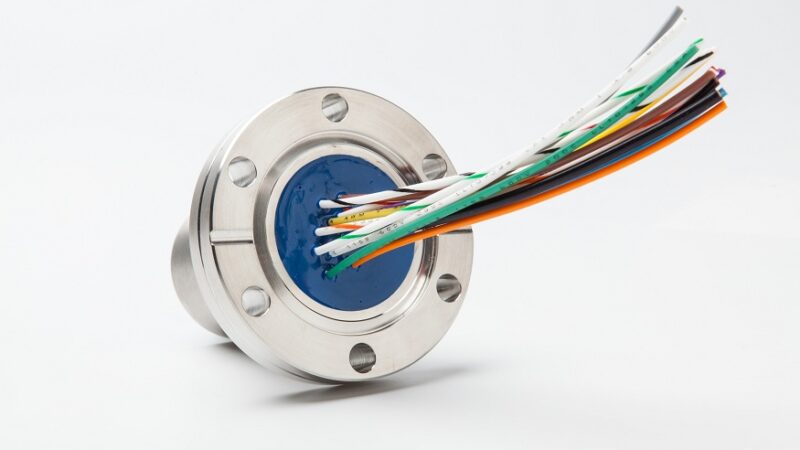Understanding Waste Disposal Rules in South Florida

Daily life in South Florida produces enormous quantities of waste—from construction debris and household junk to bulk materials requiring special handling. Across Miami-Dade, Broward, and Palm Beach counties, residents and business owners rely on local waste management networks to keep communities safe and clean. However, these facilities function under strict regulations that shape everything from access rules to disposal costs.
For small business owners in particular, navigating these complex systems can feel daunting. The framework that governs waste disposal favors compliance, environmental protection, and efficiency—but often demands more time, documentation, and expense from small operators.
This overview breaks down the operating principles behind South Florida’s waste facilities, explores the differences between old-fashioned dumps and modern sanitary landfills, and highlights the regulatory pressures affecting both residents and small enterprises.
Note: Gold Standard Electric is committed to quality workmanship. The commercial electrician west palm beach caters to the South Florida Market with a focus in Residential and Com
Dumps and Modern Landfills: What’s the Difference?
Many people still use the word “dump” to describe disposal sites—but modern waste management has evolved far beyond that outdated term. In past decades, communities would simply deposit garbage in open pits, letting the refuse decompose without control. These dumps often leached toxins into nearby soil and groundwater and released harmful gases into the air.
Today, that practice is illegal. Modern landfills are highly engineered systems designed to contain, control, and monitor waste while minimizing environmental harm.
Key features include:
- Protective Liners: Layers of compacted clay and durable synthetic membranes form the base, preventing liquid waste (or leachate) from contaminating groundwater.
- Gas Collection Systems: Methane generated by decomposing materials is captured and often converted into usable energy.
- Layered Operations: Waste is added in compacted layers, then covered with soil or synthetic material daily to control odor, pests, and fire risk.
In South Florida, landfill management typically falls under county departments such as Broward County Solid Waste or under private license. Every facility is subject to detailed state and federal oversight. Strict controls dictate what can be accepted, how material must be processed, and how operations must protect both the environment and public health.
Note: Need fast and reliable ac repair parkland residents trust? Call City ACS in Davie Florida today for expert service, affordable rates, and same-day solutions to keep your home cool and comfortable!
How Waste Disposal Rules Work
South Florida’s waste regulations vary slightly by county, but they share a framework that distinguishes between residential and commercial users. The type of material being dumped and the scale of the operation determine what rules apply.
For Residents
Regular residents generally have simplified access to public disposal sites. These facilities are intended for noncommercial use—handling household garbage, yard clippings, and bulk items like furniture or appliances. Typical requirements include:
- Proof of Residency: A government ID or current utility bill confirms taxpayer eligibility for local waste disposal privileges.
- Volume or Visit Limits: Residents face daily or annual disposal quotas to discourage abuse by businesses.
- Minimal or No Fees: Most household waste and recyclables are accepted for free because property assessments already fund local sanitation operations.
For Small Businesses
Businesses, contractors, and independent haulers must operate under a different system designed for commercial activity. These regulations reflect both the volume of waste generated and its potential environmental impact.
- Tipping Fees: Commercial clients pay by weight at a per-ton rate. These fees fund the facility’s maintenance, staffing, equipment, and environmental protection programs.
- Load Documentation: Businesses must maintain accurate records detailing what materials are being disposed of, ensuring oversight of potential contaminants.
- Vehicle Requirements: Commercial haulers use dedicated access lanes and are subject to inspection to confirm compliance with safety and load-securement rules.
Materials Prohibited at Landfills
Certain items cannot be accepted under normal operations because they pose risks to public safety or the environment. These materials require special handling or designated collection points:
- Hazardous Chemicals: Paints, solvents, pesticides, and industrial compounds belong in specialized hazardous waste centers.
- Tires: Their bulk and methane-trapping properties make them problematic and often subject to separate recycling fees.
- Electronic Waste: Computers, televisions, and similar devices contain metals and toxins that must be processed through electronics recycling programs.
- Medical Waste: Any biological or sharp items must be managed by medical disposal services rather than standard landfills.
People who dispose of banned materials improperly can face fines or legal penalties, as enforcement has become stricter in recent years.
The Growing Divide: Large Corporations vs. Local Contractors
The waste industry in South Florida—like much of the country—is increasingly controlled by large corporations that manage multiple stages of the waste stream: from pickup and transport to processing, recycling, and landfill operations. This consolidation has created significant competitive pressure for smaller, locally owned businesses.
1. Rising Disposal Fees
When large corporations own disposal facilities, they set tipping fee structures across markets. While higher fees help fund facility maintenance, they can put smaller haulers at a disadvantage. Many landfills impose minimum load charges—so a small contractor dropping off half a ton may be forced to pay the same rate as a large truck depositing multiple tons. For local tradespeople, that dramatically cuts into margins and profitability.
2. Increasing Administrative Burdens
Permits, reports, and compliance paperwork are critical to keeping operations transparent, but for small-scale contractors, they can be time-consuming and expensive. Major corporations can easily afford in-house compliance teams to handle filings, whereas independent operators often must manage those tasks personally, diverting time away from paid projects.
- Added Costs: Licensing fees, documentation requirements, and annual renewals add cumulative expenses, sometimes pushing smaller firms toward unsustainability.
3. Vertical Integration
Corporate consolidation often means one entity controls the entire disposal process—from collection and sorting to end-stage landfill operations. These vertically integrated companies can offer their own haulers reduced rates or faster turnaround times. Independent operators, who must pay full fees at facilities owned by competitors, are disadvantaged before they even start.
4. Sorting and Environmental Standards
Current environmental policies require sorting materials into separate categories—concrete, wood, metals, cardboard, and more. This promotes recycling but adds labor for smaller contractors who lack automated sorting systems. Large corporations can easily invest in mechanized sorters; small operations are typically reliant on manual labor, slowing workflow and increasing costs.
Note: We are a quality mortgage brokerage firm in South Florida that provides great, competitive rates with flexible types of loan packages. Need a mortgage lender click here.
The Bottom Line
Waste management remains one of South Florida’s most complex yet vital public services. The region’s modern landfills are engineered to protect the environment while supporting a rapidly growing population. For everyday households, compliance is relatively simple—verify residency, follow quantity limits, and keep hazardous items separate.
For small businesses, however, the situation is more demanding. Between high tipping fees, steep compliance costs, and the increasing dominance of large waste firms, local contractors often struggle to stay competitive. Still, by maintaining up-to-date knowledge of county rules and planning disposal costs into every project bid, small enterprises can better navigate these challenges.
Ultimately, understanding how South Florida’s waste facilities function isn’t only about proper disposal—it’s about financial survival and responsible stewardship. Staying informed ensures both environmental protection and long-term business sustainability in a region where trash management is as essential as any other infrastructure.






